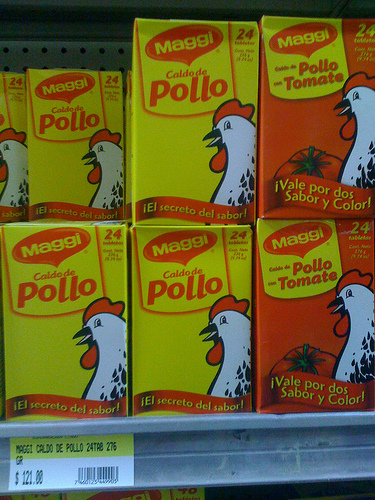
MSG has a bad name, but it's largely undeserved. In the 1970s there was a health panic about MSG causing headaches and other medical issues. While it's true that some people are sensitive to MSG, the number of MSG-sensitive people is quite small, along the lines of the number of people who have any other food allergy. Nevertheless, restaurants and food manufacturers removed MSG from their products, proudly proclaiming that they were "MSG-free."
Today, a lot of people have the vague sense that MSG is bad for you, without knowing why. It turns out that not only is MSG not harmful, it's also quite tasty. And in a world where most foods are made more tasty by either adding fat, salt, or sugar, it's far better to add MSG instead if possible.
MSG kicks up the "umami" flavor in food. Like salt, it enhances flavors without bringing much of its own flavor to the table. But unlike salt, MSG does not affect blood pressure. MSG is found in a lot of foods (including chicken broth and onion soup mix), and can also be found on American grocery store shelves in Maggi sauce and Accent spice mixes.
MSG has been creeping back into our diets, often under other names such as "hydrolyzed soy protein" or "autolyzed yeast." And some cutting-edge chefs are starting to experiment with it openly, due to the way that it cranks up the volume on umami flavors, which are one of the hot trends in cuisine today.
The FDA, the World Health Organization, and the United Nations (among others) have all done studies and concluded that MSG poses no health hazard to most people. However, there are still some die-hard MSG haters who believe that it is toxic even in small doses. The argument is very similar to the argument against aspartame (and in fact there seems to be a great deal of overlap between aspartame-haters and MSG-haters).
Image courtesy Flickr/Melina

0 comments